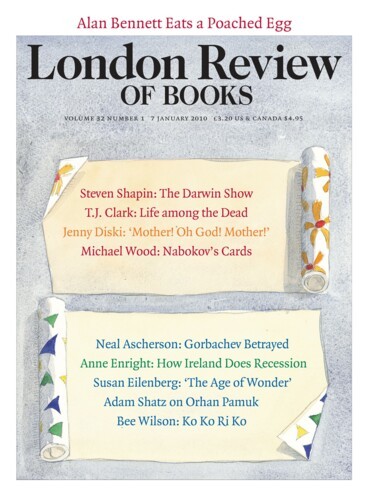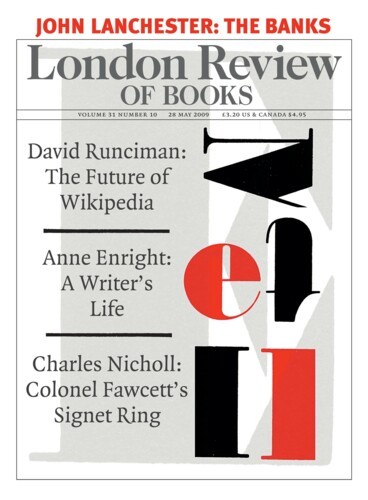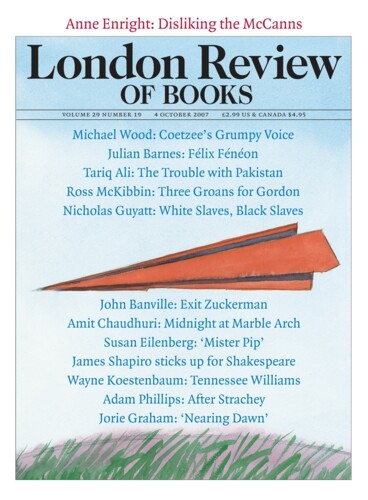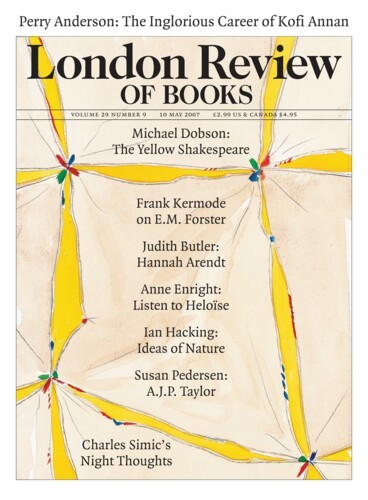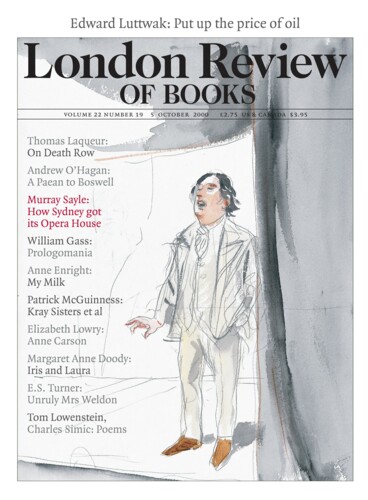Sinking by Inches: Ireland’s Recession
Anne Enright, 7 January 2010
In the middle of 2007 a Romanian taxi driver told me he was going home to Bucharest because ‘the building site is dead.’ All his friends had already gone. He had a wife with a new baby (called Seán, as I remember), and this was why he would be the last to leave. I don’t know why nobody listened to this guy, or how we failed to understand what he was saying.
